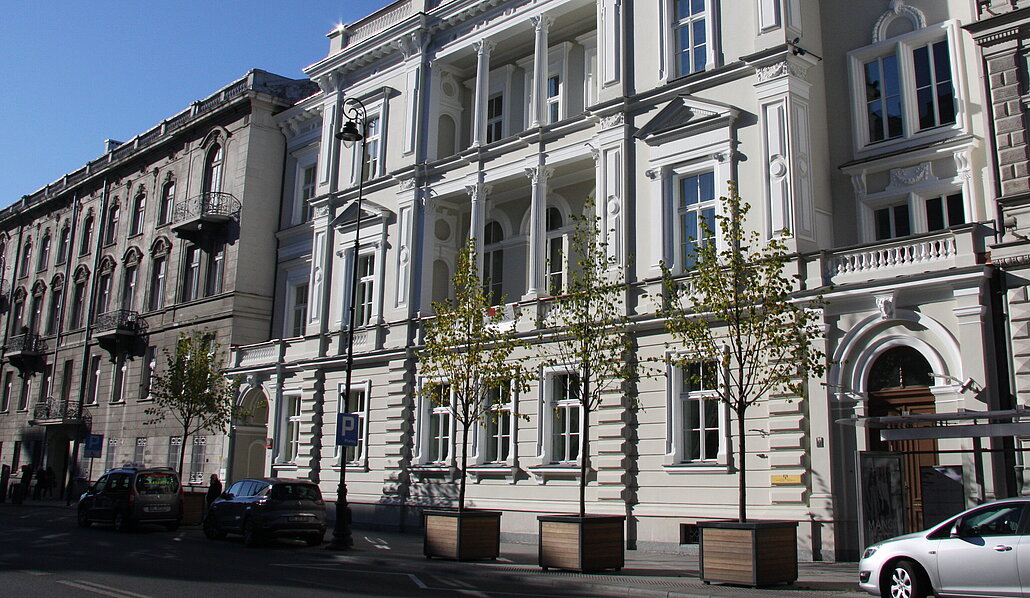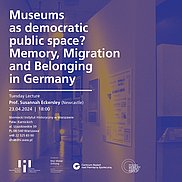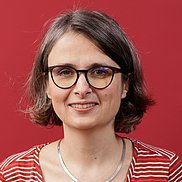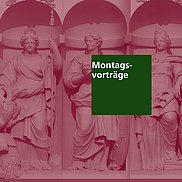Connecting Catholics in a Divided World: The Vatican and the Local Roman and Greek Catholic Church in Eastern Europe as an Intermediary in the Cold War (1945–1978)
Collegium Carolinum Munich, 3rd and 4th May 2024
Marion Dotter (Collegium Carolinum, Munich)
Julian Sandhagen (GHI Rome)
Viktoriia Serhiienko (GHI Warsaw)
World War II ended for Pope Pius XII with an ambivalent result: the Holy See was widely regarded as a reinvigorated institution of peaceful reconstruction, but the pontifex was confronted with the fact that communism, with its repressive church policy, had penetrated far into the Catholic heart of Europe. Former strongholds of the Catholic faith like Poland, Slovakia and Croatia were now governed by atheist ideologues who regarded the Catholic Church with suspicion or outright contempt. Nearly everywhere in East-Central and Southeastern Europe, the Church subsequently came under immense pressure and faced tough questions on how to deal with these new regimes.
With the opening of the archival records of the pontificate of Pius XII in 2020, a plethora of sources became available to researchers that offer insights into the ways the Vatican tried to navigate these new political realities. The Vatican, as the centre of Catholic life, was, however, defined by a distinctive tripartition: On the one hand, it stood as a significant state actor, wielding the unique status of the Holy See as a sovereign entity, while on the other hand, it operated as an influential non-governmental organization with a transnational network of a local clergy, religious orders, and welfare organizations that transcended political borders. Finally, the Catholic Church was not only a political actor that operated on different levels, but also a spiritual one with goals and priorities that transcend a secular political understanding.
However, the Vatican`s grip on the global multifaceted network of Catholic faith was fragile at best and therefore constantly renegotiated between different actors: The national churches, religious orders and papal envoys all had their own ideas on which strategies had to be employed against communism. This workshop therefore aims to explore how the Church's identity as a sovereign state, a non-governmental and a spiritual actor shaped its responses to communist regimes and how these dimensions coalesced to define its position not only in the context of Eastern European history but also more broadly in the context of the Cold War.
A valuable aspect of this workshop is furthermore – besides the focus on the Roman Catholic Church – a critical look at the relationship between the Vatican and Greek Catholics, who, unlike Roman Catholics, were in a completely different legal position in the postwar period. The formal liquidation of the Ukrainian Greek Catholic Church at the L’viv Council in 1946 opened a series of liquidation councils of Greek Catholic churches in Romania, Czechoslovakia, and Poland (the latter was not officially banned but ceased to exist). The Vatican’s long-standing problems in understanding the unique position of the Greek Catholic churches on the cultural borders of two traditions - Catholic and Orthodox - not least due to its lack of interest in Eastern Europe (but not in Russia), were multiplied after World War II by the difficulty of understanding the complex, often tragic, life circumstances of its priests and faithful behind the Iron Curtain and the limited ability of the Holy See to influence the situation.
Because of this complexity with Roman and Greek Catholics trying to survive under communist rule and the Holy See struggling for political and diplomatic influence in the East of Europe, we encourage submissions that adopt a research perspective, which evades a top-to-bottom approach, but rather aims to comprehensively examine the diverse actors within the Catholic Church's complex tapestry during the communist era in Eastern Europe. By embracing a multi-dimensional lens, we seek to show the interactions and contributions of various stakeholders within the Church. We are therefore particularly interested in exploring the entanglements, cooperation, and conflicts among various Catholic entities transcending regions, borders, and levels of the ecclesiastical hierarchy. These interactions illustrate the interconnectedness of numerous Catholic representatives and organizations, extending even beyond the iron curtain. Our approach embraces a comprehensive definition of historical actors, encompassing institutions such as the Secretary of State, the Pontificia Commissione di Assistenza, and Catholic Action, as well as individuals like bishops, nuncios, and laypersons. This inclusive perspective allows us to view the Church as a pluralist entity, responding to the challenges of the Cold War in East Central and South Eastern Europe through a wide array of initiatives, including social, political, and theological measures.
While our primary emphasis remains on the postwar era spanning from 1945 to 1958, leveraging the recently accessible documents within the Vatican Archives, the aforementioned transformations persevered beyond the passing of Pope Pius XII in 1958. Consequently, we are also looking for scholarly submissions that expand upon this viewpoint, looking at dynamics in the 1960s and 1970s.
The workshop will take place as part of the project “The Global Pontificate of Pius XII
Catholicism in a Divided World, 1945–1958” (for more information visit our Website: piusxii.hypotheses.org) at the Collegium Carolinum in Munich from 3rd to 4th May. We also encourage young scholars (doctoral students and postdocs) to apply for the workshop.
Travel and accommodation costs for the speakers will be covered by the organizers.
The deadline for submitting abstracts (approx. 300 words) together with a CV is 20 November 2023. Please submit your abstract to: catholicsincoldwar@gmail.com.
Publication of the revised papers in a peer-reviewed book publication is planned. Optionally, potential participants can therefore also submit a writing sample in English (of an article, a book chapter, etc., even if it is unpublished at the moment). This will make it easier for the organizers to select the most relevant applications.






